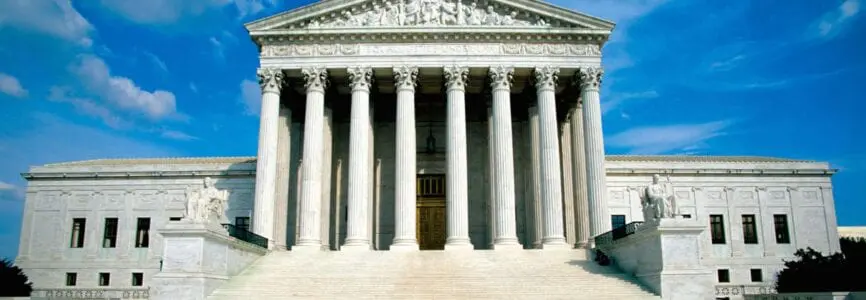Bioethics Forum Essay
The Supreme Court and Health Care Access for Undocumented Immigrants
The Supreme Court announced that it will hear a legal challenge to President Obama’s 2014 executive action to protect an estimated five million undocumented immigrants from deportation and permit them to work legally. The implementation of the Deferred Action for Parents of Americans and Lawful Permanent Residents (DAPA) program and an expansion of the Deferred Action for Childhood Arrivals (DACA) program created through a 2012 executive action have been held up in court due to legal action initiated by the Texas attorney general.
Texas and other states have argued that they will suffer injury due to the consequences of the executive action on state expenditures. Texas, for example, has restricted drivers’ licenses to immigrants who are “lawfully present.” According to an August 2015 report from the Pew Charitable Trusts, 10 states plus the District of Columbia issue drivers’ licenses to qualified drivers without restrictions based on immigration status; most states exclude undocumented immigrants. Because the process of enrollment in a federal program such as DAPA or DACA involves a determination that an individual is lawfully present, increasing the number of immigrants who are lawfully present also increases the number of people who may be eligible for drivers’ licenses.
What’s the connection to health care access? For an undocumented immigrant, the process of securing relief from deportation by securing “deferred action” status through a mechanism such as DACA or DAPA involves being designated by the federal immigration system as Permanently Residing under Color of Law (PRUCOL). A person designated as PRUCOL is known to the immigration system and is unlikely to be deported. While undocumented immigrants are ineligible under federal law for a range of federally-funded benefits, it is up to each state to decide which state-funded benefits are available to this population. Some states have long used PRUCOL as a threshold for providing some benefits to undocumented immigrants. Notably, New York and Massachusetts permit state residents who are PRUCOL to apply for Medicaid.
The 2012 executive action that created DACA also created a large new PRUCOL population, raising fresh state-level questions about health care access. If some undocumented immigrants were now eligible for state-issued driver’s licenses, why not also state-funded health insurance? In 2013, California answered this question by extending Medi-Cal to income-eligible residents enrolled In DACA. If the 2014 executive action is upheld by the Supreme Court (look for arguments in April and a decision in June) and implemented in the last months of the Obama administration, many more undocumented immigrants could secure public health insurance in these three large states.
Nancy Berlinger is a research scholar at The Hastings Center and the co-director of the Center’s Undocumented Patients project.













